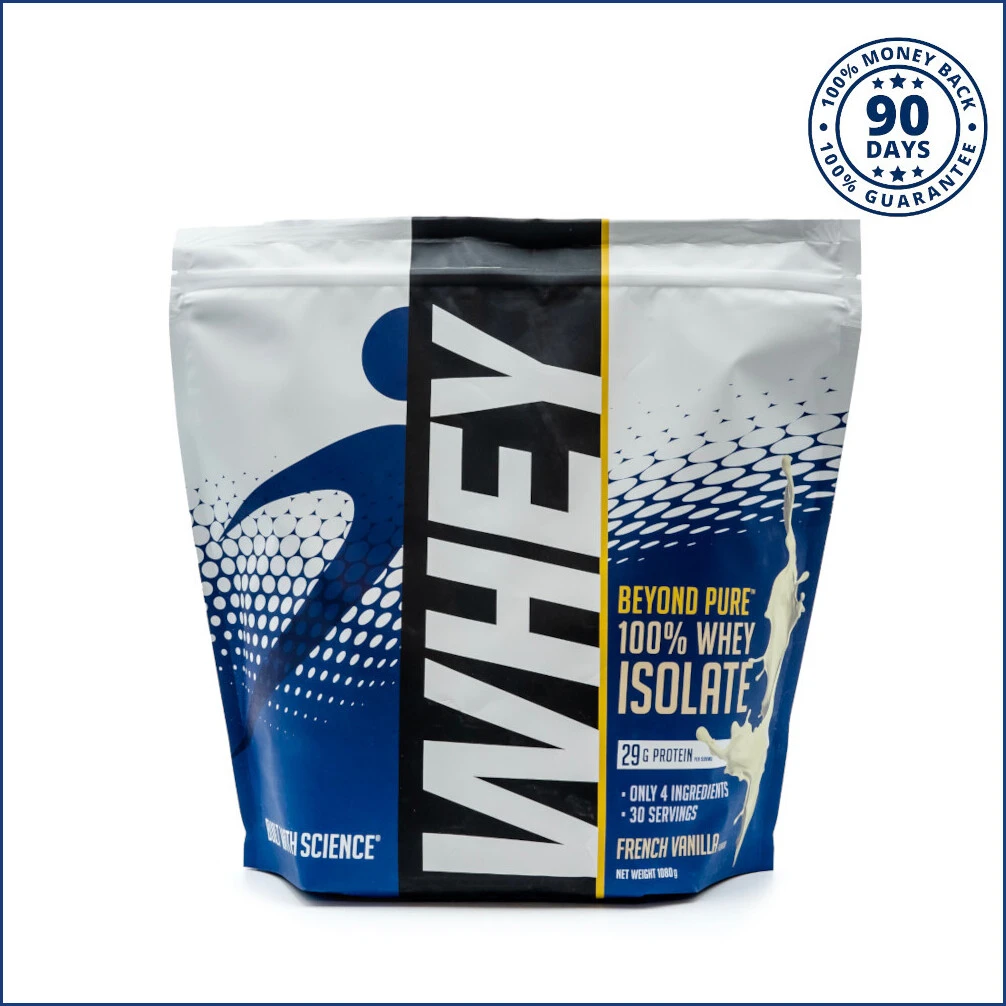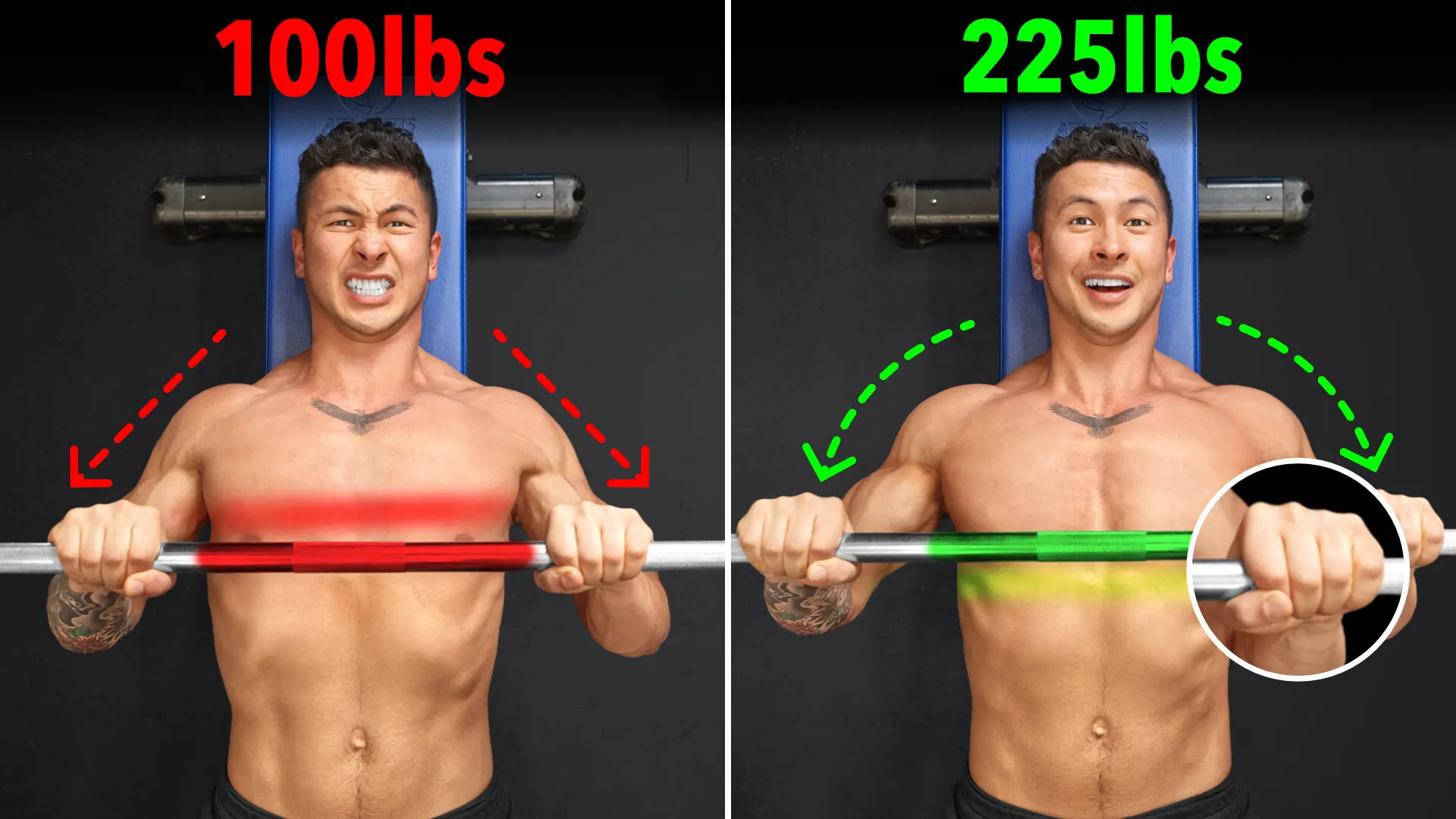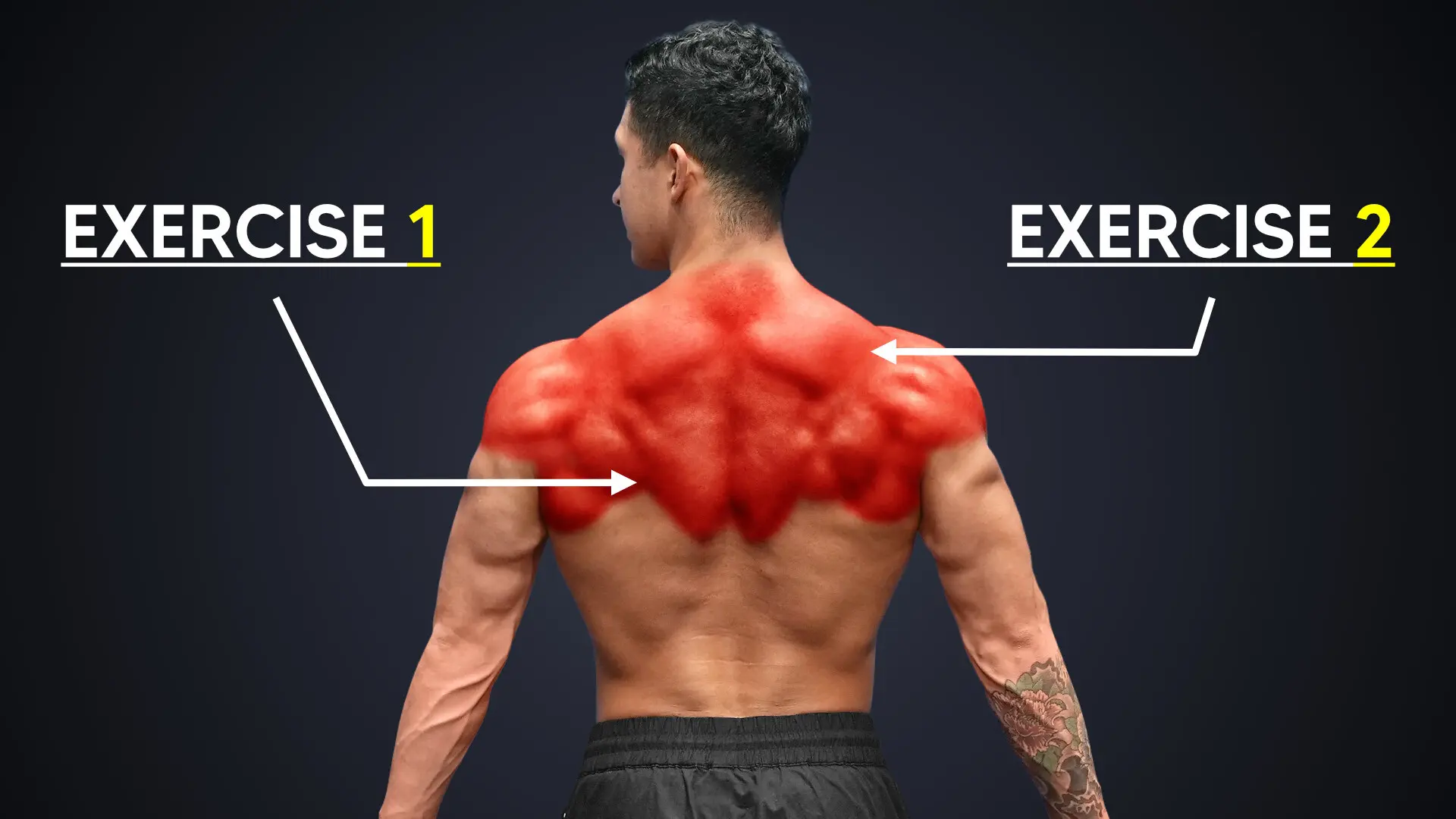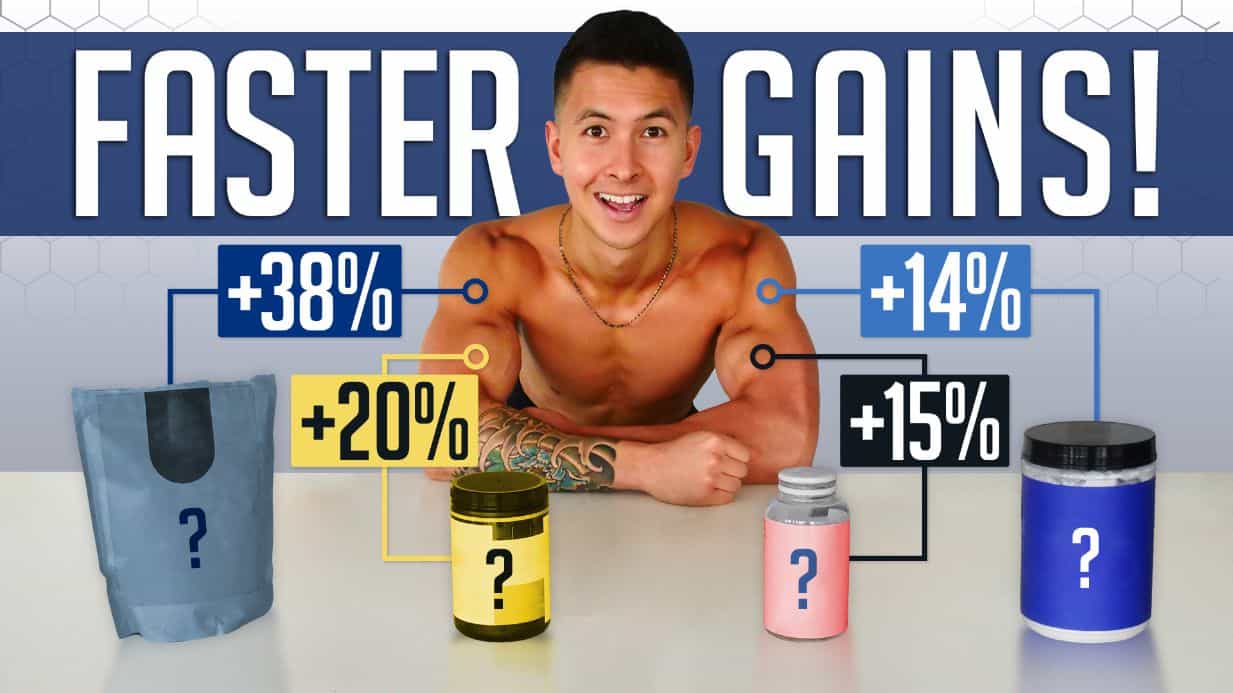
The 4 BEST Muscle Building Supplements (And How Much They Help)
A vast majority of the muscle building supplements available do absolutely nothing. Thankfully, there are a few supplements that do live up to their muscle growth claims. Find out what they are in this article.
I remember the very first time I walked into a supplement store. I was completely overwhelmed with all the different options. But luckily, I had the sales rep there by my side to guide me. 10 minutes later... I was set with $400 worth of different, 'best muscle building supplements' that I was promised would get me, and I quote, “absolutely jacked”. A month later though, all I had to show for my investment was an empty wallet.
Let's fast forward to now. I’ve learned through research that the vast majority of muscle-building supplements out there (unfortunately):
- Do absolutely nothing, OR
- Are used and marketed totally out of context
... To take advantage of those who don’t know any better.
That being said, there are a handful of supplements that when used properly, actually do live up to their claims. And can indeed help speed up your results. In this article, I cover 4 such supplements. I'll not only go through how they work but also the results you can expect from each of them. Hopefully, this will help you set realistic expectations about supplements meant to help with muscle gain in general.
Of course, by now, you should know that supplementation is useless if you're not training correctly. So, before we begin:
Click the button below to take my analysis quiz to discover the best program for you:
↓
Supplement 1: Whey Protein
Protein powder is by far the most widely consumed supplement in the industry. Whey protein powder, in particular, has been shown to rank as the highest-quality protein source when compared to several other protein sources. This is mainly because of its high leucine content, which is one of the main factors determining the quality of a protein source.
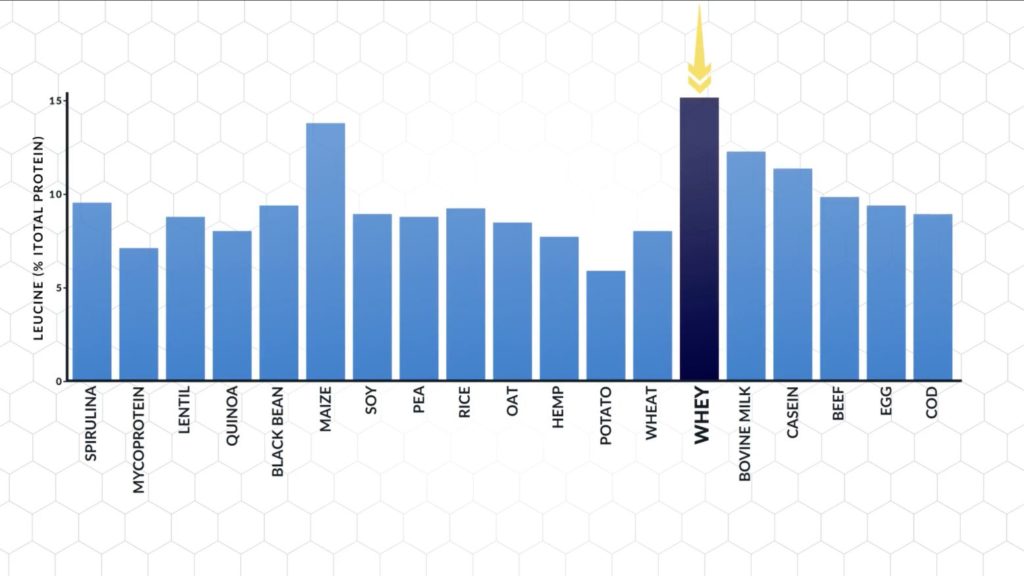 But, this doesn’t make it some magical muscle building supplement. Despite what your supplement store sales rep says, protein powder does not seem to directly help you build muscle faster. Consistently eating enough protein does. And you actually don’t need protein powder to get there. Whole foods alone can do this for you just fine.
But, this doesn’t make it some magical muscle building supplement. Despite what your supplement store sales rep says, protein powder does not seem to directly help you build muscle faster. Consistently eating enough protein does. And you actually don’t need protein powder to get there. Whole foods alone can do this for you just fine.
Why Is Whey Protein Considered One Of The Best Muscle Building Supplements?
But, for a few reasons, protein powder is considered one of the best supplements for muscle gain and strength. There are 3 reasons why whey protein can help you build muscle in a more efficient way.
First off, it’s typically very low in fat and carbs. And is, instead, very high in protein content. This nutritional profile makes it very calorie- and macro-friendly compared to other protein sources.
Second, it’s convenient. Whey protein can be used in many different ways to both save you time and add some more life to your diet - instead of relying on the same boring protein sources every day.
And lastly, it’s actually quite affordable when viewed at a price per gram basis. In fact, the average cost of whey protein is comparable to that of chicken breast.
This all just makes it easier for you to consistently reach the optimal daily protein intake (roughly 0.8-1g of protein per lb of body weight per day). That, otherwise, can be a struggle to hit. And herein lies the mechanism through which protein powder can indirectly speed up your growth.
Where's the research?
In fact, one meta-analysis showed that when subjects who were ingesting only around 1.2g of protein per kg of their body weight per day added in 50g of protein into their diet mainly through the use of protein powder, they experienced significantly faster gains in muscle size and strength.
Another meta-analysis highlighted similar results. Researchers found that protein supplementation is generally associated with about a 38% faster gain in muscle and a 33% greater increase in strength if you’re not currently hitting the optimal protein intake.
So, if you’re currently having a hard time getting sufficient quality protein through whole food sources alone? Then whey protein is definitely a good option to help you reap those extra gains you’re missing out on.
Supplement 2: Creatine
Next is creatine. This is probably the most well-researched and science-backed supplement on the market.
Creatine is a substance that’s already naturally found in our bodies, and how it works is very simple. Whenever we lift weights, we use something called ATP. This is the main energy source for our muscles.
As we lift, we deplete these ATP stores to the point where we fatigue and can no longer perform any more reps or lift the weight up. This is where creatine comes in. It facilitates a faster regeneration of ATP. In turn, enabling us to perform that extra rep or two or lift slightly more weight during our workouts. And improving our strength and muscle endurance.
In fact, a meta-analysis reviewing 22 creatine studies found that creatine supplementation provided a boost of roughly 8% greater strength and 14% greater reps performed when compared to no supplementation. Admittedly, this doesn’t sound like much of a boost. But these small gains do add up over time. And have been shown to speed up the rate of muscle and strength gains as a result.
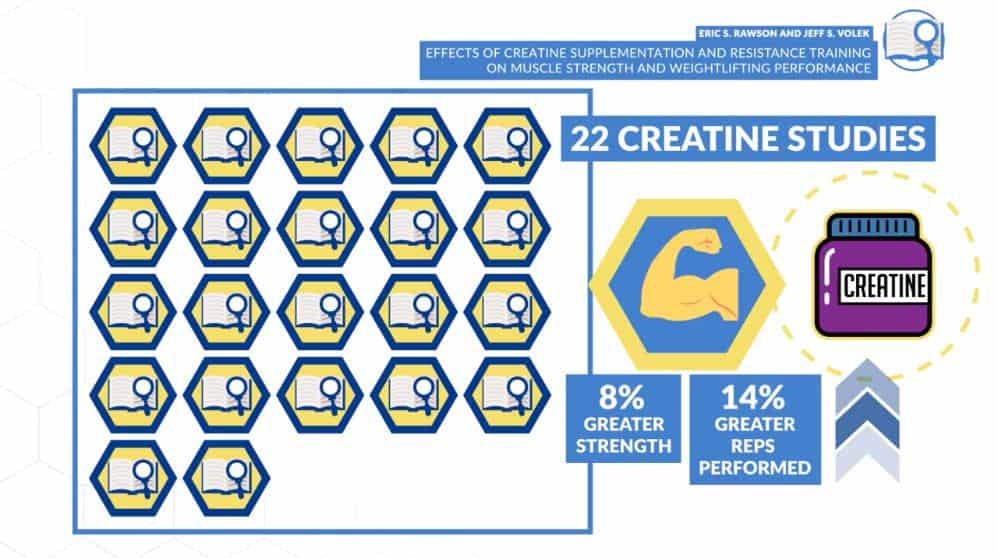
But, just be wary that there does seem to be quite a bit of variation with regards to the response to creatine. With vegetarians, vegans, (you get a low amount of dietary creatine from consuming animal meat) and those who are naturally low in creatine levels experiencing the most benefit. And lastly, I want to emphasize that creatine doesn’t simply do the work for you. The benefits you get from supplementing with it only apply if you’re actually pushing yourself harder in your workouts as a result.
Supplement 3: Caffeine
Next is caffeine. If you take pre-workout supplements, you're definitely familiar with caffeine. This is another well-researched and well-known substance that can indirectly speed up our growth. Research has shown that caffeine ingestion prior to our workouts can:
- Enhance our muscle contractions AND
- Enable us to perform more reps by altering our pain thresholds and our perception of how hard we’re working
Research On The Effects Of Caffeine Supplementation
What about the amount of benefit you can expect with supposedly one of the best muscle building supplements? Well, a recent meta-analysis found little to no benefit of caffeine ingestion on strength or the amount of weight you’re able to lift in an exercise. But did find quite a significant and consistent effect on muscular endurance. And the number of reps you’re able to perform.
On average, caffeine ingestion enabled subjects to perform around 2-3 more reps per set. This led to about a 10-20% boost in their total reps performed as a result. Researchers speculate that these effects likely speed up growth over time due to the increased volume that subjects are able to achieve by ingesting caffeine prior to their workouts.
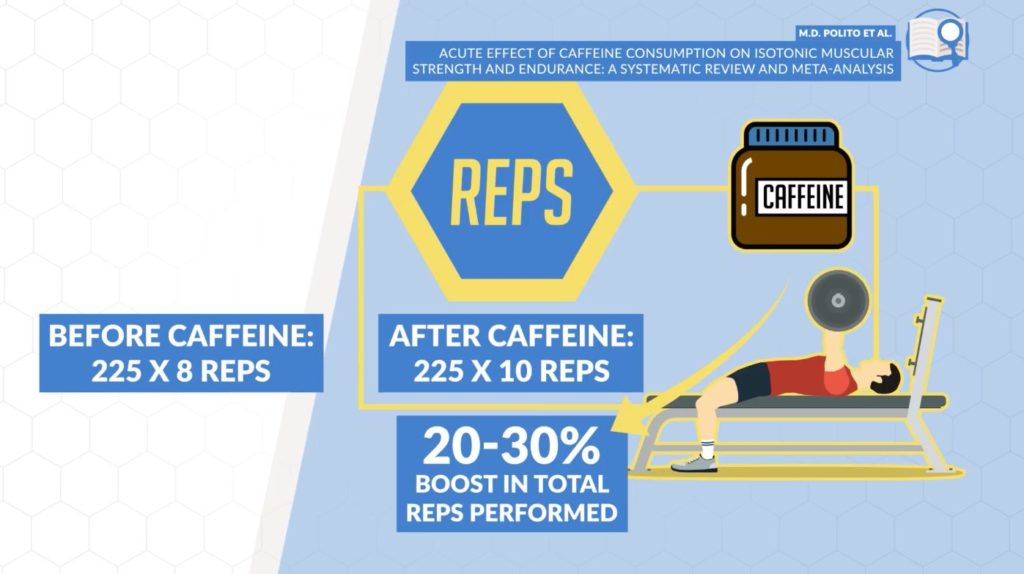
Here's what a 2019 paper had to say about caffeine:
“In resistance exercise, for example, caffeine can acutely increase total volume load. If continued over time, the cumulative effect of these acute performance increases might also impact hallmark resistance-training adaptations, such as skeletal muscle hypertrophy and increased strength, both of which appear to be augmented with increased volume. Furthermore, as caffeine ingestion pre-exercise may delay exercise-induced fatigue, individuals may be able to train for more extended periods with a higher exercise quality, which, subsequently, may enhance long-term training adaptations. Until future long-term studies are conducted, these ideas remain speculative, and future work is evidently needed."
Caffeine Supplementation Appears To Favor Lower Body Workouts
However, the benefits we see with caffeine supplementation seem to favor lower body workouts more than upper body workouts. This is likely because they’re generally more strenuous and require more effort. We also see a greater effect when it’s used during early morning workouts if you’re not accustomed to doing them. The same applies to during workouts where you’re sleep deprived from a poor night’s sleep the night before.
A potential consideration that must be taken into account, however, is your habitual caffeine intake. Those who consume caffeine on a regular basis tend to see somewhat of a blunted response to its ergogenic effects. So, what I’d recommend is to avoid becoming overdependent on this supplement. And avoid developing a caffeine tolerance too quickly. Instead, reserve its use for workouts where you’ll reap the most benefit from it. For example:
- Lower body workouts
- Early morning workouts OR
- Days where you just need that extra kick
... Are typically going to provide the best opportunity to reap the most benefit from caffeine.
As for dosage, most studies found a beneficial effect only when using roughly 3-6mg of caffeine/kg of bodyweight. You can get this amount through a pre-workout supplement, coffee, or a caffeine supplement. However, do keep in mind that this range is quite high. Especially if you aren’t accustomed to taking caffeine. So start on the low, conservative end and increase as needed.
Really enjoy digging into the research? Then you'll absolutely love working with my team of highly-qualified trainers and nutritionists (plus myself!); in the process of guiding you through the process of achieving your dream physique in the time-efficient way possible, we'll also make sure you understand the science behind it all. Find out more here:
Click the button below to find out more about the 3-on-1 coaching program:
↓
Supplement 4: Beta-Alanine
Now, here to help us with the last supplement is an internationally-renowned fitness expert and researcher Dr. Brad Schoenfeld. He has done a considerable amount of work within the field of supplements. And is, therefore, more than qualified to offer insights on the best muscle building supplements available.

Jeremy
So aside from the 3 other good muscle building supplements we’ve previously covered, there’s 1 more that you’d also add to the list. And that's beta-alanine. Would you mind just briefly explaining how exactly this supplement works?
Brad
Beta-alanine is an amino acid. That, when supplemented, facilitates increases in muscle carnosine levels. Carnosine acts as a hydrogen ion buffer. This is important for activities such as resistance training, sprinting, and other anaerobic forms of exercise. As there is a substantial buildup of lactic acid that occurs, which ultimately impairs performance. The buffering action of carnosine can help to delay fatigue from the associated hydrogen ion accumulation (acidosis). And, thus, enable the performance of additional work (e.g. reps during lifting).
Jeremy
Based on the research you’ve covered, how much of a benefit can the average lifter expect to get in terms of performance and additional gains from taking this supplement?
Brad
The primary performance benefit for resistance training is when you are performing higher rep routines (~10+ reps per set). This is because this type of training is most affected by acidosis.
By allowing the performance of additional reps at a given submaximal load, beta-alanine can ultimately enhance muscle-building capacity via greater volume-load and sustained mechanical tension.
However, there is a fairly large degree of interindividual variability.
Jeremy
Lastly, how exactly does one go about taking this supplement to maximize its benefit?
Brad
Consumption of 4-6 g/day for ~four weeks is needed to see the full effects of beta-alanine on carnosine levels. You should divide servings into doses of 2 g or less and spread them out over the day for best results. Large doses are not as well tolerated. And are associated with higher excretion rates. The primary side-effect is a tingly sensation throughout the body. That said, spreading doses further across the day can help to alleviate this phenomenon.
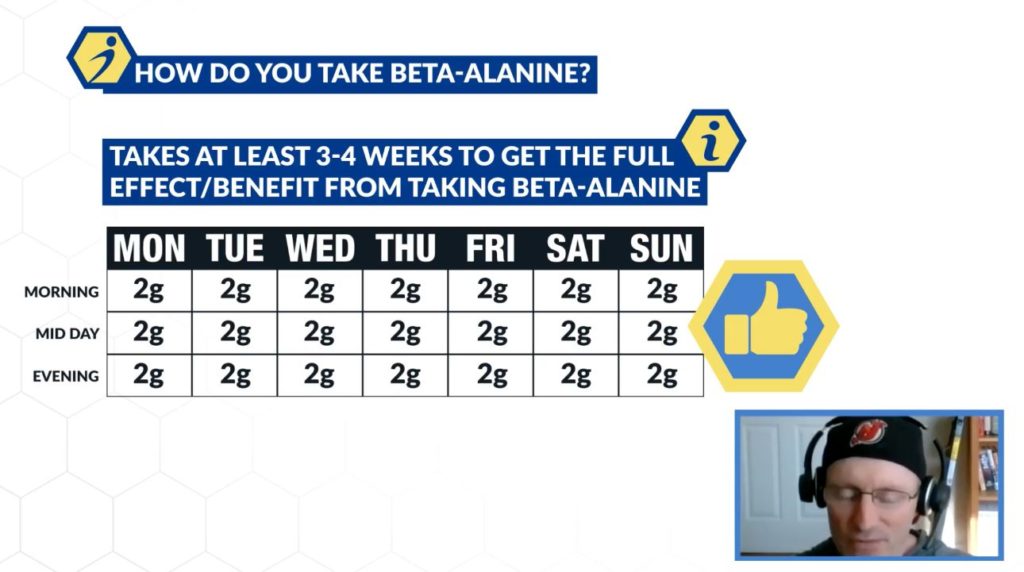
Best Muscle Building Supplements: Takeaway
So, hopefully, you were able to see that supplements are not magic. You still need to put in the work. And even then, they aren’t extremely effective. But, the little boosts you do get from each of these supplements can add up to meaningful difference over time. This is especially when you then pair this with the right training and nutrition program.
And for a step-by-step program that uses science to guide you week after week with your training, your nutrition, and even your supplementation, so that you can truly maximize your results, then:
Click the button below to take my analysis quiz to discover the best program for you:
↓
Anyways that’s it for today guys! You now know what supplements to take to build muscle. I hope you all enjoyed it! Don’t forget to give me a follow and connect with me on Instagram, Facebook, and Youtube as well, in order to stay up to date with my content.

